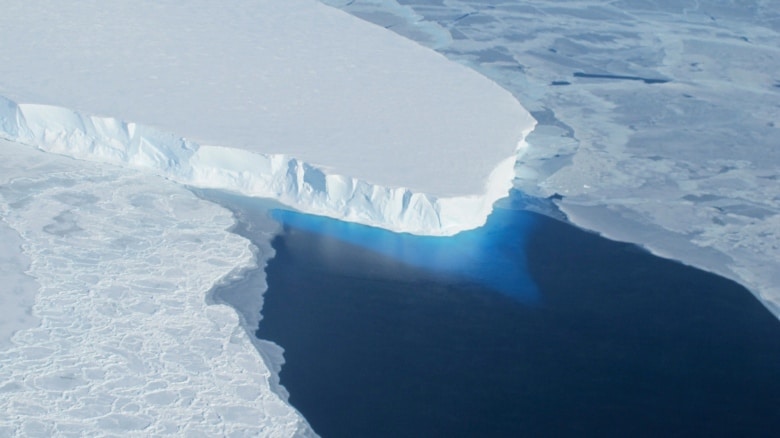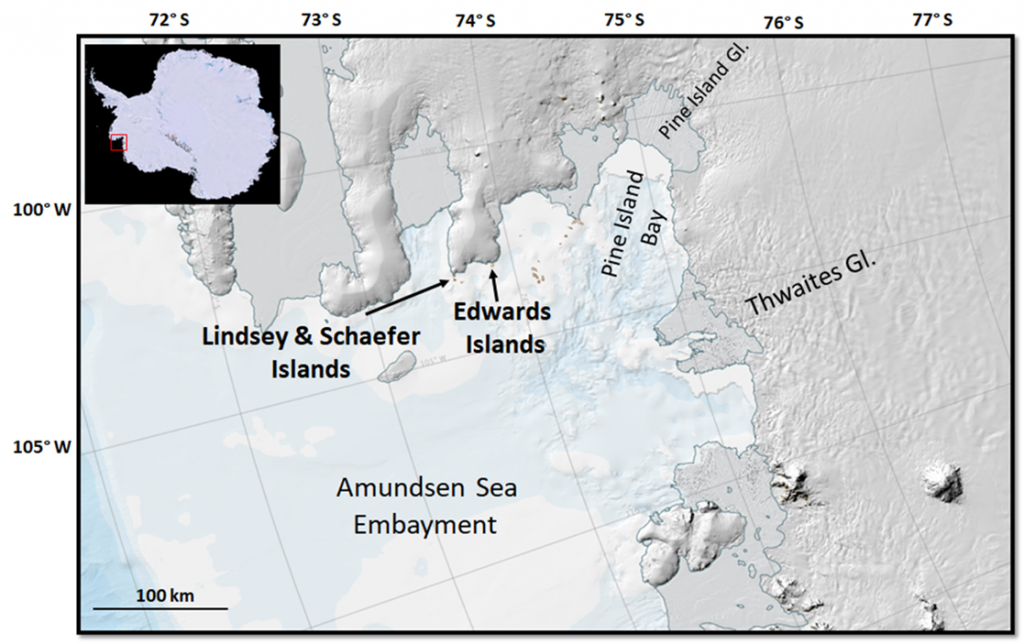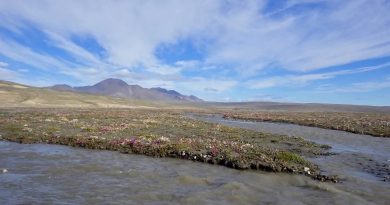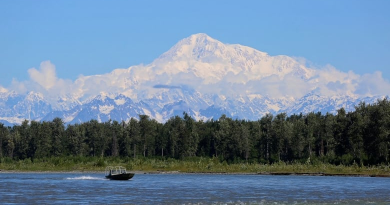Scientists identify unprecedented ice loss at two Antarctic glaciers

By using radiocarbon dating on shells, an international team of scientists has identified unprecedented ice loss at two of Antarctica’s glaciers, saying they appear to be losing ice faster now than they have over the last 5,000 years.
“Looking back in time allows us to understand how these massive glaciers react to changes in climate,” Joanne Johnson, one of the authors of the recent study outlining the findings, said in a news release.
“Our results show that even when climate was warmer 5,000 years ago, the glaciers were not substantially smaller than they are today. However, the much slower rate of relative sea level fall we measured implies that the dramatic ice loss we are now seeing is unprecedented in the recent geological past.”
The researchers looked at two glaciers: the Thwaites and Pine Island Glaciers in the West Antarctic Ice Sheet.
To do the research, the scientists collected shells and penguin bones from ancient beaches on remote islands in the region that were now situated above today’s sea level.

Radiocarbon dating of the shells allowed the scientists to determine when the beaches were formed and whether there was any significant changes in glacier size. The researchers found that sea level in the area fell over the last 5,000 years, suggesting glaciers during this period were relatively stable.
“Relative sea-level change allows you to see large-scale crustal loading and unloading by ice,” Brenda Hall, one of the study’s authors and a professor at the School of Earth and Climate Sciences and the Climate Change Institute in the U.S.
“For example, glacier readvance, which would result in crustal loading, would slow the rate of relative sea-level fall or potentially even cause submergence of the land below sea level.”
Implications for sea level rise
The researchers say understanding the behaviour of the Thwaites and Pine Island Glaciers will be of particular importance going ahead when it comes to understanding the implications for sea level rise.
“Of concern is the ongoing mass loss of Thwaites and Pine Island glaciers, which together drain a large portion of the Amundsen Sea sector and reach deep into the heart of the WAIS,” the researchers say in their paper. “These glaciers are susceptible to rapid retreat because they are being melted from beneath by warm Circumpolar Deep Water.”
“Moreover, Thwaites and Pine Island glaciers rest below sea level on a retrograde slope with no known major topographic highs on which the glaciers could stabilize, and therefore they may be susceptible to runaway retreat via marine ice-sheet instability.”
The retreat of the glaciers is likely to trigger major ice loss of the West Antarctic Ice Sheet, something that, in coming centuries, could add up to 3.4 m to global sea level, the researchers say.
“We urgently need to understand more about these glaciers to determine whether their current retreat could be reversed, and under what conditions that could happen,” Joanne Johnson, also a British Antarctic Survey geographer, said.
“This is crucial if we are to plan effectively for future sea level rise.”
The study was published in the journal Nature Geoscience.
Write to Eilís Quinn at eilis.quinn(at)cbc.ca
Related stories from around the North:
Canada: “Our climate is changing before our eyes,” says WMO upon release of new report, Eye on the Arctic
Greenland: Climate change accelerating ice loss from peripheral glaciers, Eye on the Arctic
Norway: Will the green transition be the new economic motor in the Arctic?, Eye on the Arctic
Sweden: Sweden’s climate policies closer to reaching goals, Radio Sweden
United States: Bering Sea ice at lowest extent in at least 5,500 years, study says, Alaska Public Media



